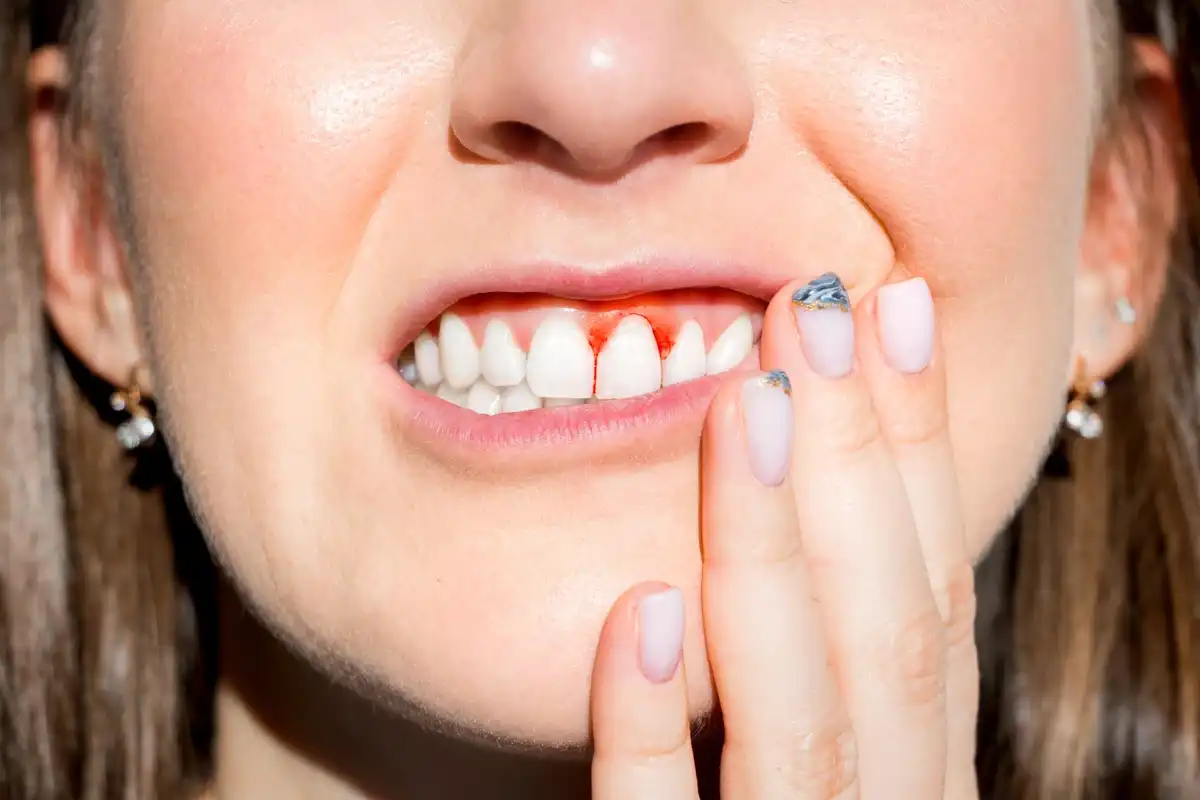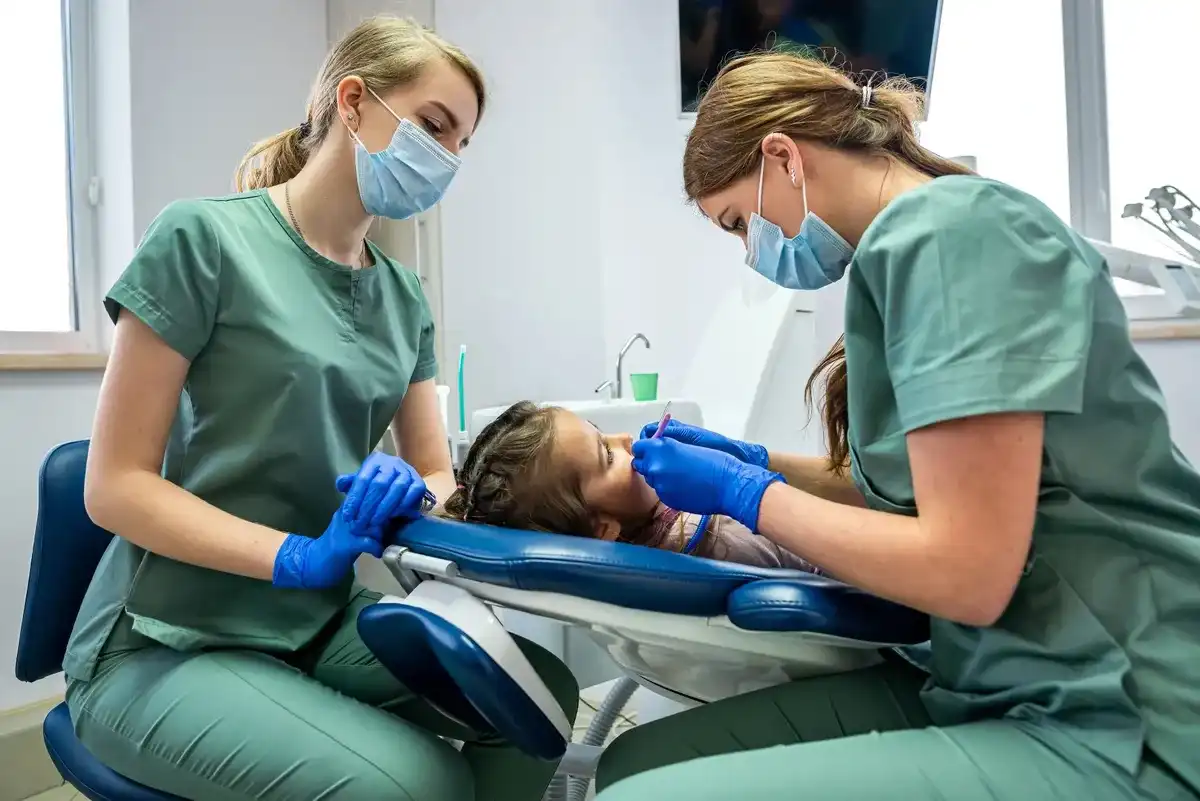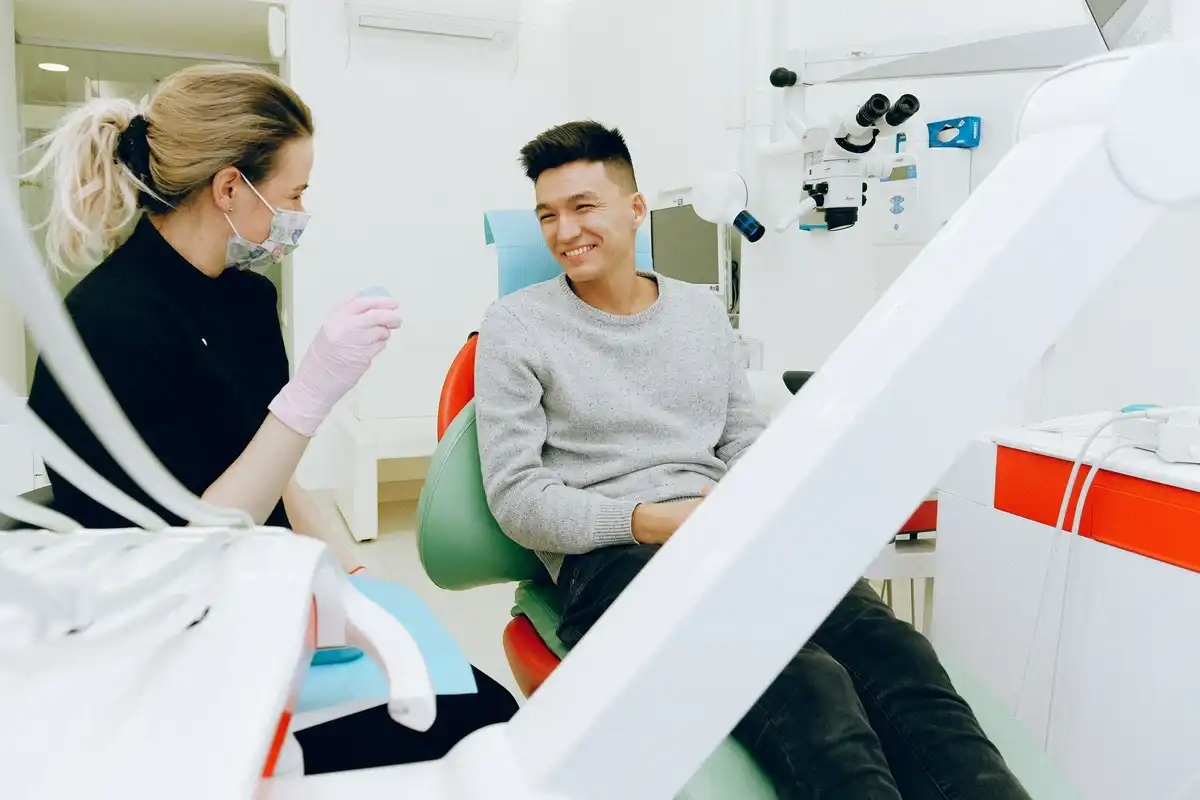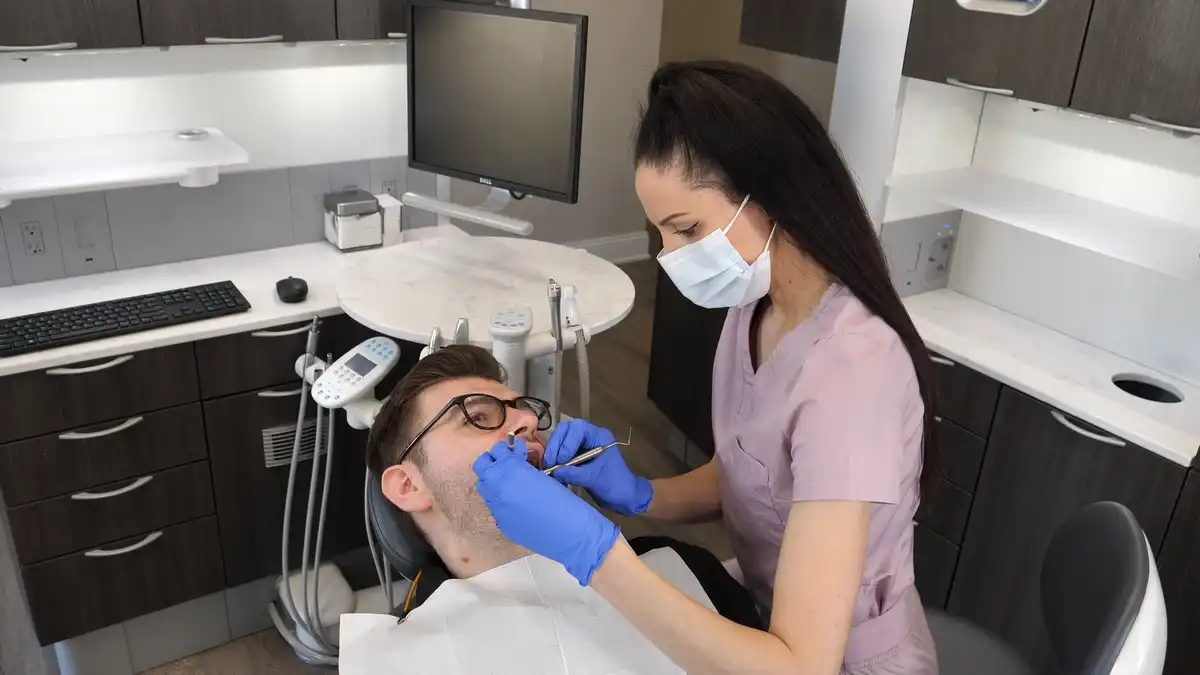No, Your Gums Aren’t Bleeding Because the Floss is Cutting Them


I can’t tell you the number of times I’ve heard someone tell me, “I don’t floss my teeth, because whenever I do, my gums bleed.”
What they don’t realize is, it’s the lack of flossing that’s causing their gums to bleed. Not the act of flossing itself. And while it’s possible to hurt yourself with just about anything (trust me, I’ve broken my toe too many times to count) you have about a 0.0001% chance of hurting yourself with dental floss.
You wouldn’t easily bleed if you rubbed the floss on your finger, against your arm, or even on your ear. So, there’s no reason why the floss is the reason behind your bleeding gums.
If You Had a Bleeding Sore on Your Arm, You Wouldn’t Leave it Alone
Usually what I do when someone says their gums are bleeding, is compare it to another body part. For example, let’s say you scratch your arm against a branch when you’re outside doing yard work. It’s a pretty decent scratch as it broke the skin, and it may even bleed a little. But you continue to finish your chores and then forget about it. A few days later, you notice that it’s swollen, red, and tender to the touch. What would you do?
Well, you wouldn’t want to ignore it, especially if it started oozing or bleeding. You would know right off the bat that it’s infected. You’d want to clean it thoroughly to prevent it from getting any worse and know to give yourself about a week or two before you can’t see it on your arm.
It’s the same thing when your gums get infected. They swell. They get red. They hurt to touch.
…And they bleed when you floss them.
Why is Flossing Important? (Or is it?)
No matter how fancy or expensive your toothbrush is, it doesn’t physically reach between your teeth or under the edges of your gums. Only floss does. Unless you’re physically rubbing the floss in every single one of those spaces, the plaque is going to hang out, tip off your immune system, and even calcify into tartar. And once you have tartar, neither brushing nor flossing is going to remove it.
When you use floss regularly, it prevents plaque from infecting your gums or calcifying into germ-harboring buildup across your mouth. Even though you can’t see it, it doesn’t mean it isn’t there. It’s probably just between your teeth and under the edges of your gums.
Yes, You Can Physically Hurt Your Mouth with Dental Floss
Now I’m just going to go ahead and say it. Yes, there is a fraction of a chance that you could cut your gums with floss. Usually, this happens when you pull/jerk/yank the floss straight down into that little pointed piece of gum tissue between your teeth (your papilla.) To prevent that from happening, make sure you wrap your floss in a C-shape against the side of your tooth, rub it up and down against the tooth as well as under the gums, then lift it over the papilla before you repeat the process on the neighboring tooth.
Why I Prefer String Floss Over Most Floss Picks
Floss picks are convenient. But not all of them work for everybody. Traditional string floss is easier to manipulate and wrap around your teeth. Whereas a rigid floss pick usually keeps a straight shape, making it harder to conform to the curved side of your tooth or slide under the gums. YES…some floss picks are a bit easier to manage. There are even some specifically shaped differently for this reason.
Typical floss picks are great for kids, flossing your front teeth after a business lunch, or while you’re on the go. But you might not want to rely on them for cleaning between your back teeth every single day. Then again, if that’s all you want to use it’s definitely better than nothing. When you know you have at-risk areas at the back of your mouth and you’re specifically targeting bleeding gums, it’s probably best to invest in something else for the time being.
If You Absolutely Hate Flossing, Try This Instead
Surprise! There is at least one alternative to using string floss. And thank goodness, because I loathe flossing too (there, I said it.) It’s a water flosser. Water flossers spray a firm stream of H20 to flush away plaque along the gumlines, between teeth, around braces, and under fixed restorations like bridges and dental implants. There are even models out there that you can hook up to your shower so that you never need to worry about making a mess of your bathroom.
Water flossing might even be better than traditional flossing for people who have a history of gum disease, lots of restorative work, or are in braces. It’s simply easier to use in hard-to-reach spaces and can get in there further when you need it to.
Still Bleeding After Two Weeks? Houston, We Have a Problem
Typically, daily flossing and brushing properly should reverse gingivitis in 10-14 days. Don’t expect an overnight miracle. But if you find that you’ve flossed every day for a solid two weeks and your gums are still bleeding profusely, there’s a bigger problem going on. Remember how I mentioned tartar buildup under your gum tissues? You probably have some. And when that’s the case, the tartar is also telling your gums and bone to start detaching from your tooth roots.
In other words, you probably have periodontal disease.
Gum disease requires the help of your dentist and hygienist to treat it. There’s no way around it. They’ll need to remove the calcified deposits on the roots of your teeth to stop the source of your gum infection. The longer you wait, the more at-risk you are to lose your teeth for good.
Today’s the Day
If it’s been a while since your last dental checkup, your gums bleed, and your mouth isn’t responding to a re-vamped hygiene routine, make your dental appointment and ask for a periodontal screening.

Make your inbox smile!
Subscribe





